Girlfriend’s Loyalty Test Backfires, Destroying Relationship—But She Thinks She’s Innocent
In a two-year relationship marked by affection and occasional jealousy, a 28-year-old man faces a profound breach of trust. His 29-year-old girlfriend, driven by insecurity after meeting his female coworker, orchestrates a deceptive scheme. She creates a fake Instagram account impersonating the coworker, engaging him in flirtatious conversations to test his fidelity. Upon discovering the ruse, he confronts her, only to encounter denial, gaslighting, and a lack of remorse. This betrayal leaves him questioning the foundation of their relationship and whether trust can be restored.
When this man received a follow request from his coworker, he started to wonder if it was really her behind the account

And his suspicion was right: it was actually his girlfriend testing him


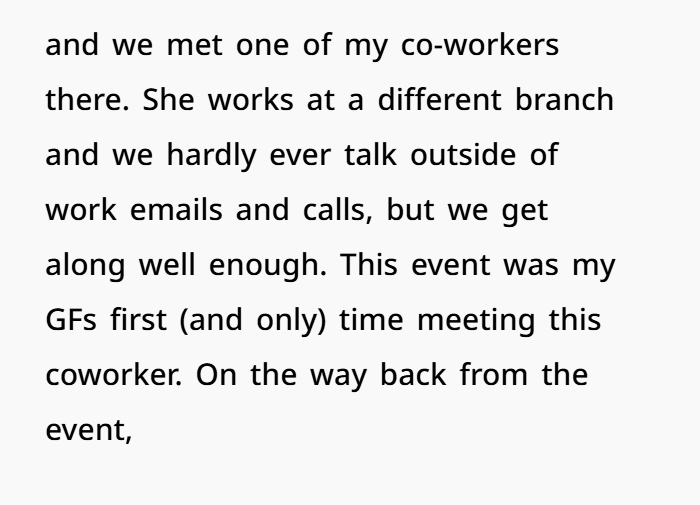


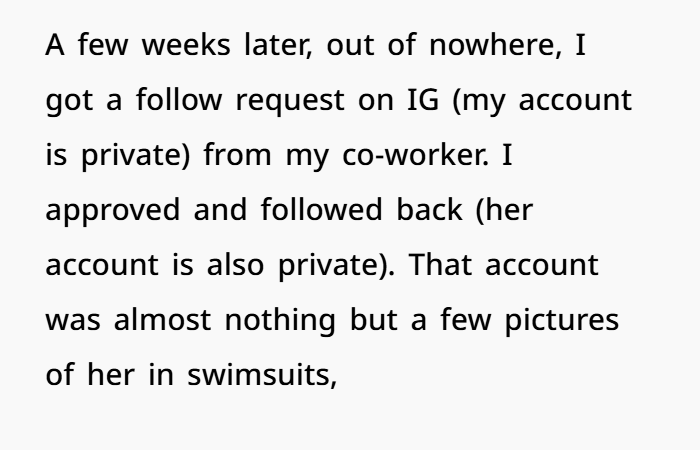

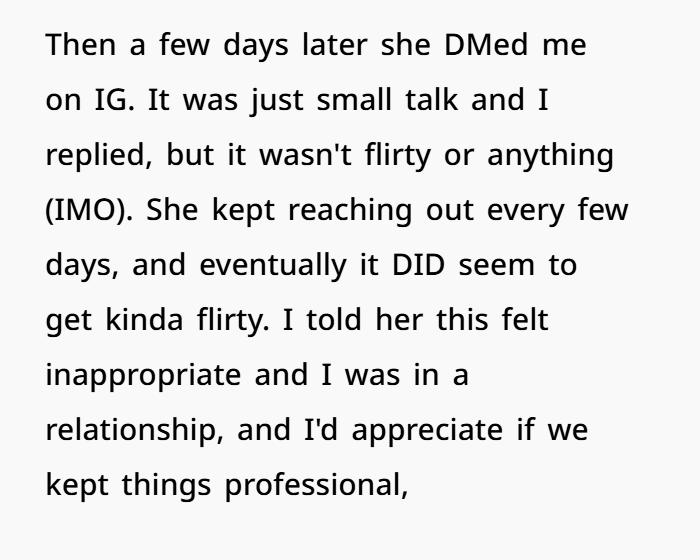

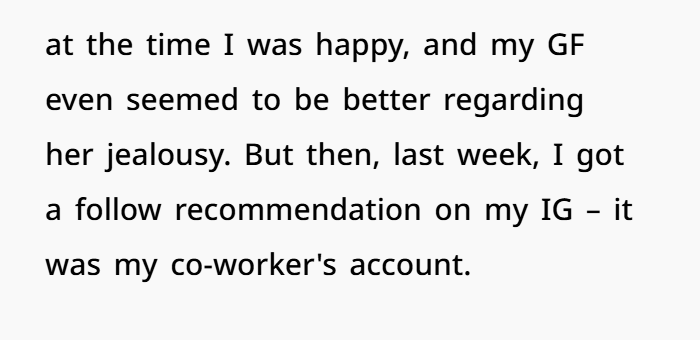
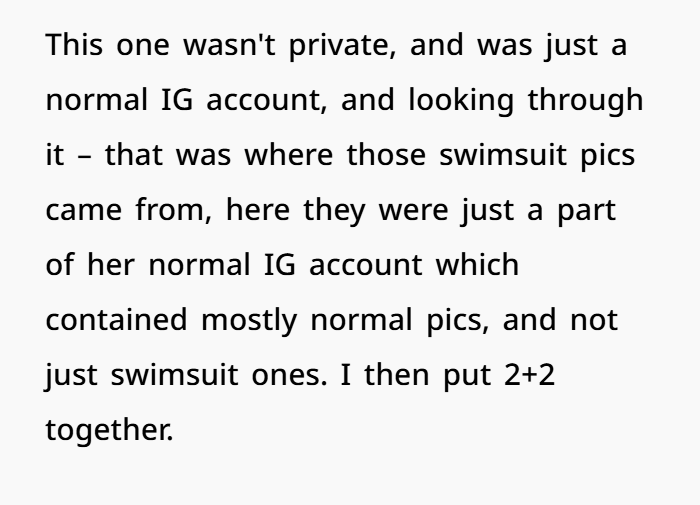
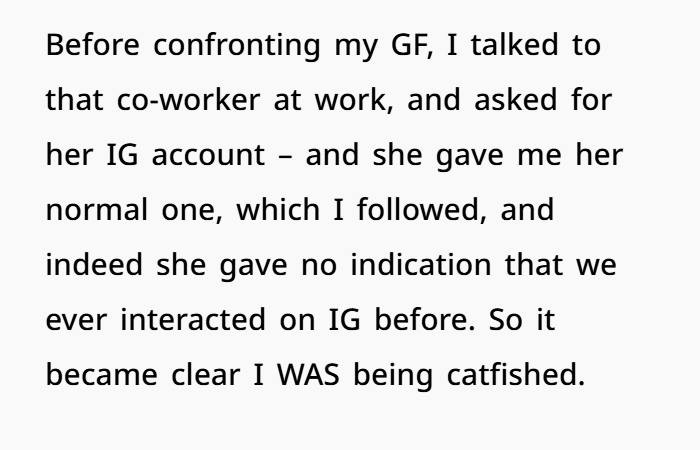
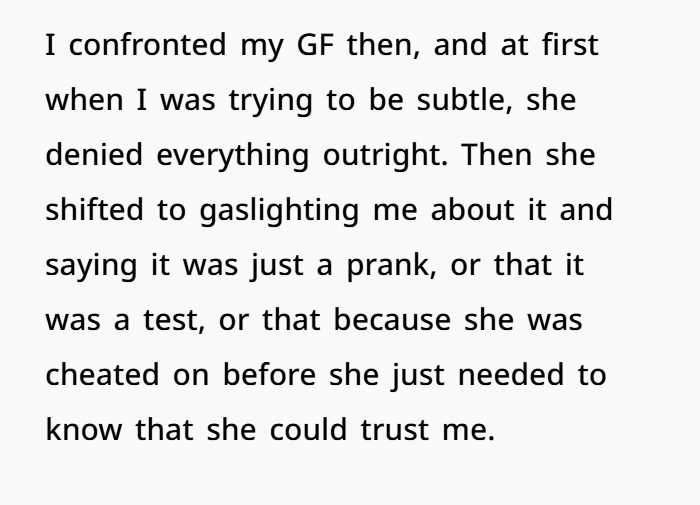
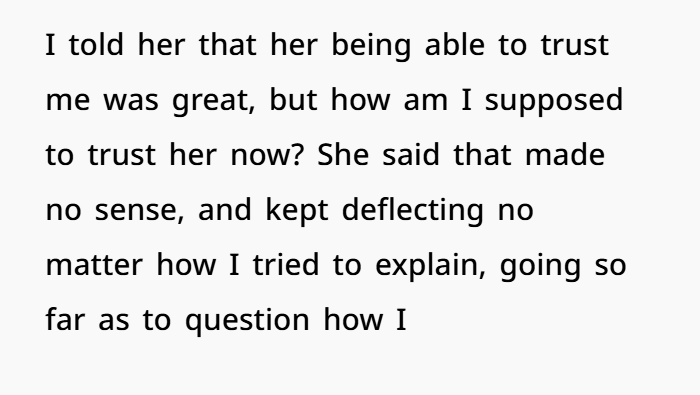
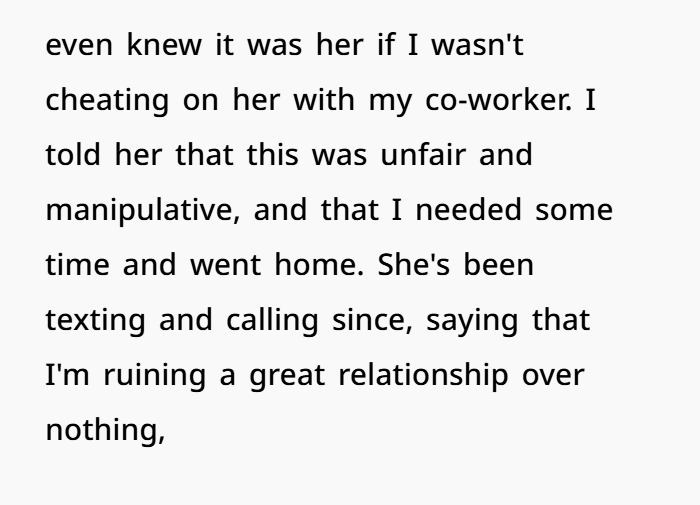



Discovering that a trusted partner has engaged in catfishing—a deceptive act of creating a false online persona to mislead someone—can be profoundly destabilizing. This breach of trust not only challenges the foundation of the relationship but also inflicts significant emotional and psychological distress on the victim.

The Psychological Impact of Being Catfished by a Partner
When deception originates from within an intimate relationship, the repercussions are particularly severe. Victims often grapple with feelings of betrayal, humiliation, and a profound sense of violation. The emotional turmoil can manifest in various ways, including:
- Erosion of Self-Esteem: Learning that a partner has manipulated one’s trust can lead to intense self-doubt and diminished self-worth. Victims may question their judgment and feel foolish for not recognizing the deceit earlier.
- Anxiety and Depression: The shock and stress of such betrayal can trigger anxiety and depressive episodes. The constant replaying of events and overanalyzing interactions can be mentally exhausting.
- Difficulty Trusting Others: Experiencing deception from a loved one can make it challenging to trust future partners or even friends, leading to social withdrawal and isolation.
As highlighted by Psych Central, the emotional and psychological damage caused by catfishing can be severe, sometimes leading to depression or even suicidal thoughts. Psych Central
Understanding the Motivations Behind Catfishing in Relationships
To navigate the aftermath of such deception, it’s crucial to understand the underlying motivations that drive individuals to catfish their partners:
- Insecurity and Low Self-Esteem: Some individuals, plagued by feelings of inadequacy, may create false personas to test their partner’s fidelity or to seek validation. This behavior often stems from a deep-seated fear of abandonment or not being “enough” for their partner.
- Jealousy and Possessiveness: A partner might resort to catfishing to monitor or entrap their significant other, especially if they harbor suspicions or jealousy. This controlling behavior is indicative of an unhealthy dynamic within the relationship.
- Desire for Control: By manipulating interactions through a fabricated identity, the deceiving partner gains a sense of control over the relationship, dictating scenarios and gauging reactions without revealing their true selves.

Understanding these motivations doesn’t excuse the behavior but provides context that can be essential for healing and decision-making.
Rebuilding Trust After Deception
Restoring trust after such a profound betrayal is a challenging endeavor that requires commitment, transparency, and time from both partners. Key steps in this process include:
- Open Communication: Both partners must engage in honest dialogues about the deception, underlying issues, and feelings. This transparency lays the groundwork for understanding and potential reconciliation.
- Seeking Professional Support: Couples therapy or individual counseling can provide a safe space to explore emotions, understand motivations, and develop strategies for rebuilding trust.
- Establishing Boundaries: Clearly defining acceptable behaviors and setting boundaries can prevent future transgressions and ensure both partners feel secure.Wikipedia
- Demonstrating Consistency: The partner who committed the deception must consistently demonstrate trustworthy behavior over time to rebuild credibility.
As noted by Verywell Mind, rebuilding trust involves a mutual commitment to the relationship and to each other, emphasizing the importance of consistent actions and open communication. Verywell Mind
When to Walk Away

Despite efforts to mend the relationship, there are instances where the breach of trust is irreparable. It’s essential to assess:
- Lack of Remorse: If the deceiving partner fails to acknowledge their wrongdoing or shows no genuine remorse, it indicates a fundamental disconnect.
- Repeated Behavior: A pattern of deceit suggests deep-rooted issues that may not be resolvable, posing a continual threat to one’s emotional well-being.
- Personal Well-being: Prioritizing one’s mental and emotional health is paramount. If the relationship perpetuates distress, it may be healthier to part ways.
As highlighted in a Reddit discussion, victims of catfishing often experience long-term trust issues, emphasizing the profound impact such deception can have on one’s ability to trust others in the future. Reddit
Most of the people who read the guy’s story supported him and his wish to end the relationship
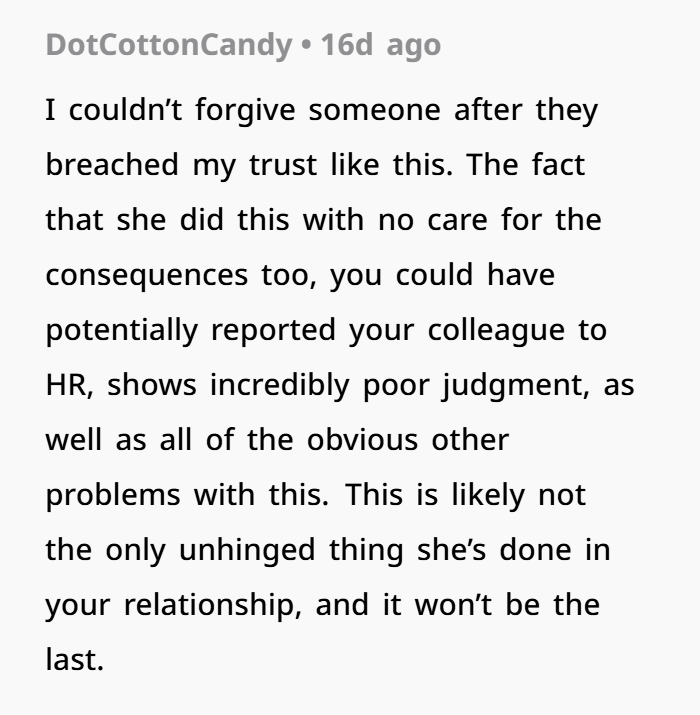


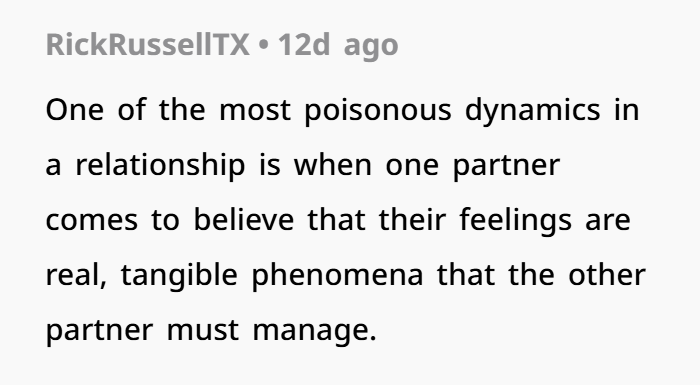
Being catfished by a partner is a deeply traumatic experience that shakes the very foundation of trust and intimacy. While understanding the motivations behind such actions can provide some clarity, it doesn’t diminish the pain inflicted. Rebuilding trust is a formidable journey requiring mutual effort, transparency, and, often, professional guidance. However, it’s equally important to recognize when a relationship is beyond repair and to prioritize one’s well-being. Each individual’s path to healing will be unique, but with time, support, and self-care, recovery is attainable.

